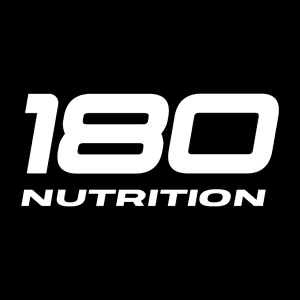180 Nutrition: Australia is a nation of coffee fanatics. 75% of the population drink a cup everyday and 24% claim they can’t live without it, research from McCrindle reveals. But aside from the delicious taste and appreciated energy boost, did you also know coffee is considered a superfood? Coffee is loaded with essential nutrients and cancer-fighting antioxidants (especially flavonoids) which protect your body from physical damage as well as improve mental health.
Essential nutrients in coffee
Coffee beans contain a whole host of nutrients. In one single cup, you’ll find 11% of your recommended daily intake of riboflavin (vitamin b2); 6% of your daily vitamin b5 intake; 3% of your daily manganese and potassium intake; and 2% of your daily magnesium and niacin (vitamin B3) intake. And if you drink several cups a day, you’ll be getting a decent share of these nutrients from coffee. While coffee lovers enjoy researching the benefits of different grinds and brewing methods (like nitro or cold brew, for example), this is only important for taste and not so much nutritional value. When it comes to health, it’s more important to pay attention to where the beans are sourced from. Brazilian, Columbian, Ethiopian, and Kenyan coffee beans have been found to contain the highest levels of polyphenols due to high altitudes and nutrient-dense soils.
Light vs. dark roast
If you want to get the most out of your coffee nutrition-wise, opt for light roast over dark. A new study in the Journal of Medicinal Food compared various types of coffee roasts in order to analyze levels of chlorogenic acid, a powerful antioxidant which helps lower blood pressure and boost mood. It turns out the lighter the roast, the higher the levels chlorogenic acid. Lighter roasts were also found to better protect human cells against oxidative stress and inflammation, which can lead to serious diseases (like diabetes, hypertension, and heart disease) over time. Caffeine levels in different roasts, however, are virtually identical.
How much is too much?
When it comes to a coffee, you can certainly have too much of a good thing. A high caffeine intake can result in symptoms, such as, jitters, insomnia, headaches, anxiety, depression, fast heart rate, upset stomach, and nausea. Excessive caffeine has also been linked to GERD (gastroesophageal reflux disease ) as it relaxes the muscle responsible for preventing the stomach contents rising up into the throat. 400 milligrams of coffee per day has recently been determined as a safe amount for adults — that’s about four or five cups of coffee. However, if you’re particularly sensitive to caffeine, you may find you do better on less. Pregnant women should stick to 300 milligrams a day.
Coffee can also play an important role in helping you maintain a healthy weight. It’s been proven to aid fat burning and boost metabolism speed by 3-11% — and who doesn’t want that? As long as you enjoy in moderation, one or more cups of coffee a day can help you stay in good health.
This article was written by Jane Munro a health enthusiast and freelance writer.







